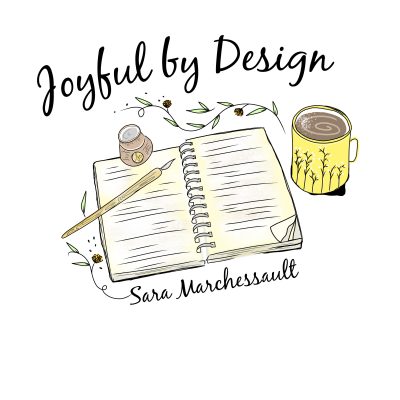 I’m not crazy about the word “should.”
I’m not crazy about the word “should.”
In fact, I follow other writers and teachers who feel the same way.
“Should” is typically followed by a statement of some object or experience that is missing in our life that we think we “should” be doing a better job of having or experiencing.
When I hear the word used, it’s usually in the context of disappointment. We are disappointed in ourselves for not doing what we “should” be doing. I should work out more often. I should stop interrupting others. I should stop procrastinating.
When we use “should” and follow it up with a heavy sigh and high sense of lack, we are continuing the “should” cycle. We are not engaging in the “do” cycle.
There are some instances in life when the word “should” is put to good use. We use the term in a positive way and take action. Out “should” become the things we “do.”
We “should” brush our teeth.
We “should” tell the people we love how much they mean to us.
We “should” keep a journal.
Okay, in all fairness, it’s more appropriate to say: we “should” find a tool or practice that brings us back into focus, keeps us centered, and helps us to grow.
For many people, that practice is meditation, talking to a therapist, or some form of exercise.
There are those of us who use journaling.
If you think about your own productivity or people you know that you consider productive, I bet they use two or more of these strategies. They might workout regularly and meditate once or twice a day. Or perhaps they keep a journal and see a counselor on a regular basis.
What’s your tool that you use to bring you back to center? How do you process your emotions so that you can keep on keepin’ on?
If you don’t have one, perhaps I could encourage you to try journal writing?
Journal writing is definitely not the only tool, but it is a highly effective one. Here are a few things I’ve picked up on in over twenty years of avid journaling and in talking with clients about their journaling practice:
- When your brain feels foggy with overwhelm or indecision, moving the pen across the page literally is like clearing cobwebs. The thick, sticky strands of what-ifs and fear get swept away so that you can think more clearly and move on.
- Writing is a communication skill. The more you write, the better you get at using writing to communicate. We get better at finding the right words to say and (dare I say it) we might even learn to temper when we say what we say.
- Decisions have a way of getting made. When we use our journal to think and process on a regular basis, it’s as if we are sharpening our decision-making ability. We learn to trust our thoughts and feelings and follow our intuition. Before you know it, you’re taking side streets to avoid traffic and going to the grocery store on a whim only to run into your old college roommate.
- Journaling provides you with a running record of your growth process. Re-reading your journals is a fantastic way to reflect and see how far you’ve come and plan what you want to be different in the future. It’s also a gift to be able to pass on, if you choose to do so.
- If you journal regularly, at some point you begin to realize that you are creating your own life story. And don’t you want that story to kick-ass? That’s when we move from writing about the cool things we want to be, do, and have to actually making them happen. Awesome!
If you use your journal to clear your mind, get your emotions onto paper and out of your body, and help you to make decisions, I say hats off to you, my friend! You are using a coping tool that will never fail and support you through thick and thin.
Journal writing makes you feel better. Period.
Even if your journal entries are full of bitching, whining, fear, and aggression, the beauty is that you are working through those feelings by getting them onto the page.
For some journalers it becomes a natural progression to start a journaling session with upsetting things in life and to finish with lines of gratitude. And when that happens, voila! You feel better.
Journal writers always have a tool to bring them back into focus, return to center, and support growth. When you go back and look at what you’ve written and use it as a tool to take action in your life, then you’ve stumbled on the gold mine within the pages of your journal.
One more thing…I found this quote from the empress of wit and vivacity herself, Jane Austen. I love how she has referred to journal writing as important to keep a personal record of one’s life, as well as a tool that improves writing ability. Enjoy!
“But, perhaps, I keep no journal.”
Perhaps you are not sitting in this room, and I am not sitting by you. These are points in which a doubt is equally possible. Not keep a journal! How are your absent cousins to understand the tenour of your life in Bath without one? How are the civilities and compliments of every day to be related as they ought to be, unless noted down every evening in a journal? How are your various dresses to be remembered, and the particular state of your complexion, and curl of your hair to be described in all their diversities, without having constant recourse to a journal? My dear madam, I am not so ignorant of young ladies’ ways as you wish to believe me; it is this delightful habit of journaling which largely contributes to form the easy style of writing for which ladies are so generally celebrated. Everybody allows that the talent of writing agreeable letters is peculiarly female. Nature may have done something, but I am sure it must be essentially assisted by the practice of keeping a journal.” – Jane Austen, Northanger Abbey
Related Posts
What do you do with a journal you hate?
There is a journal in the bottom of my trunk that I hate. It’s…
Want to make journaling a habit? Try this
I’m currently reading Essentialism by Greg McKeown and I’m enjoying it. Probably because…



Leave A Comment